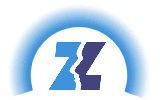German Obsessive-Compulsive Disease Society
| German Society of Obsessive Compulsive Diseases eV | |
|---|---|

|
|
| purpose | Combating Obsessive Compulsive Disorder in all its forms |
| Seat | Hamburg |
| founding | 1995
|
| President | Antonia Peters |
| Board | Michael Zaudig , Thomas Hillebrand, Oliver Sechting |
| Website | http://www.zwaenge.de/ |
The German Obsessive Compulsive Disease Society (DGZ) is a non-profit association founded in 1995 whose main goals are to provide information about obsessive-compulsive disorder , to advise those affected and to offer experts in the field of research and treatment the opportunity to exchange experiences.
Self-image
The DGZ sees itself as an organization for those affected as well as medical and psychological experts in the field of obsessive-compulsive disorder in Germany and is based in Hamburg. Psychologists and medical professionals are also represented on the four-member board and twelve-member scientific advisory board of the association.
For the treatment of obsessive-compulsive disorders, the DGZ's scientific advisory board developed recommendations on currently relevant strategies under the direction of Hans Reinecker , which are a preliminary stage of guidelines in cooperation with the German Society for Psychiatry and Psychotherapy, Psychosomatics and Neurology and the German Clinical Psychology Section Form a society for psychology and include the preliminary to the illnesses, information on psychotherapy and drug psychotherapy as well as the standard literature. The DGZ also participated with voting rights in the consensus conference for the development of S3 guidelines for the treatment of obsessive-compulsive disorder.
A focus of the work of the DGZ is the information about scientific research regarding the development, maintenance and treatment of obsessive-compulsive diseases for experts and those affected. The annual meetings of the DGZ also serve this purpose. The DGZ also maintains a discussion forum for members and those affected.
The DGZ publishes a trade journal, Z-Aktuell, once a quarter. Popular scientific information about obsessive-compulsive disorder and its treatment is available in the form of a press kit.
Honorary chairman and one of the founders of the DGZ is Iver Hand .
The DGZ is a member of the Mental Health Action Alliance .
Tasks according to the statutes
According to the statutes, the DGZ has the following specific tasks:
- Telephone references to therapists in the area who specialize in the treatment of obsessive-compulsive disorder
- Referral to self-help groups in your area
- Assistance in setting up self-help groups
- telefonic consultancy
- Annual national meeting for self-help groups
- Information sessions on obsessive-compulsive disorder
- Annual congress (exchange for experts and those affected)
- Support of research projects on obsessive-compulsive disorder through placement of test subjects
- public relation
- Training offers for therapists (Z-Expert)
Scientific Advisory Board
There is a scientific advisory board with experts on obsessive-compulsive disorder in Germany.
Artist awards
The DGZ awards prizes to artists who have dealt outstandingly with the subject of obsessive-compulsive disorder .
- 2015: Oliver Sechting and Max Taubert for the documentary How I Learned to Love Numbers .
literature
- U. Demal, J. Langkär: Obsessive- compulsive disorder. A guide for loved ones . German Society for Obsessive Compulsive Diseases DGZ, Osnabrück 1998.
- H. Reinecker, P. Joraschky: Force . In: Wolfgang Senf, Michael Broda (Ed.): Practice of Psychotherapy. An integrative textbook . 5th edition. G. Thieme, Stuttgart 2012, ISBN 978-3-13-106095-2 , p. 362 ( limited preview in Google Book search).
Web links
- German Obsessive-Compulsive Disease Society
- Swiss Society for Obsessive Compulsive Disorders
- Austrian portal on the subject of obsessive-compulsive disease
- The tyranny of agonizing obsessive-compulsive disorder. In: The WORLD. online May 20, 2009.
- Trapped in your own life. In: ZEIT online. July 13, 2009.
- When compulsions paralyze everyday life. In: RP Online. 18th September 2014.
Individual evidence
- ↑ David Althaus, Nico Niedermeier, Svenja Niesckene: Obsessive- compulsive disorder. When the addiction to security becomes a disease . CH Beck, Munich 2008, ISBN 978-3-406-57235-7 , p. 232 ( limited preview in Google Book search).
- ↑ About us the DGZ
- ↑ Treatment recommendations of the DGZ for obsessive-compulsive disorders
- ↑ Consensus conference for the development of S3 guidelines for the treatment of obsessive-compulsive disorder , see tab "Editors and authors"
- ↑ S3 guideline obsessive-compulsive disorder . In: Fritz Hohagen, Andreas Wahl-Kordon, Winfried Lotz-Rambaldi, Cathleen Muche-Borowski (eds.): S3 guideline for obsessive-compulsive disorder . Springer, Berlin 2015, ISBN 978-3-662-44137-4 , pp. viii , doi : 10.1007 / 978-3-662-44138-1 ( limited preview in Google Book search).
- ^ Forum of the DGZ
- ↑ About the Z-Aktuell
- ^ A b Nicolas Hoffmann, Birgit Hofmann: When constraints restrict life. The classic for those affected - expanded and with new exercises - obsessive thoughts and compulsive actions . 14th edition. Springer, Berlin 2013, ISBN 978-3-642-35352-9 , pp. 15 , doi : 10.1007 / 978-3-642-35352-9_1 ( limited preview in Google Book search).
- ↑ DGZ press kit (PDF).
- ↑ Prof. Iver Hand appointed honorary chairman
- ^ DGZ as a member of the Mental Health Action Alliance
- ↑ a b c d e Wolf Hartmann: Together against coercion. The German Society for Obsessive Compulsive Diseases eV introduces itself . In: Wolfgang Senf, Michael Broda (Ed.): Psychosoziale Umschau . Psychiatrie-Verlag, Bonn March 2011, p. 44 ( full version - psychiatrie-verlag.de [PDF; 4.5 MB ]). Full version - psychiatrie-verlag.de ( Memento of the original from April 2, 2015 in the Internet Archive ) Info: The archive link was inserted automatically and has not yet been checked. Please check the original and archive link according to the instructions and then remove this notice.